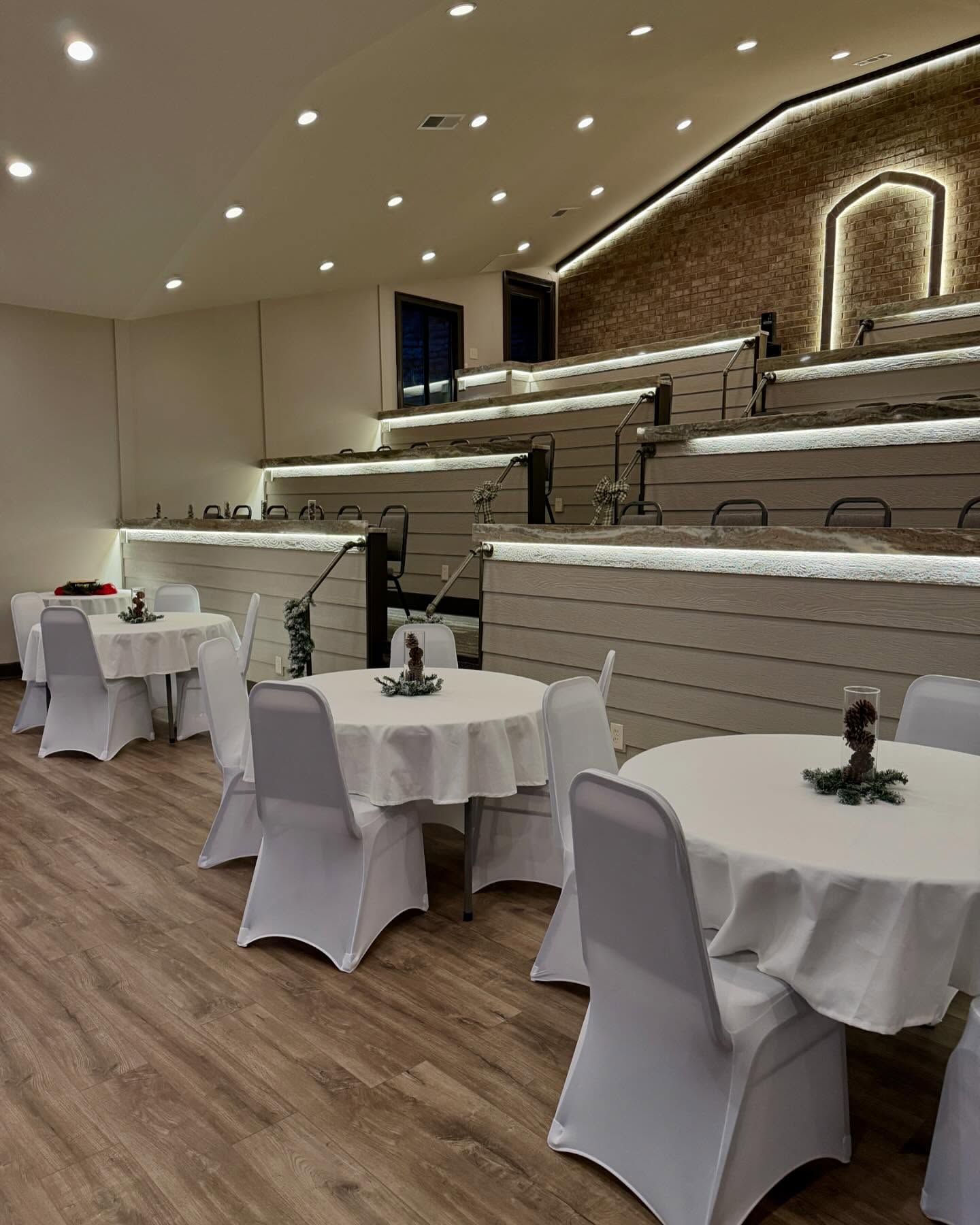The Cost of Overspending: How Smarter Choices Could Lead to Financial Freedom & Happiness
When it comes to major life milestones, many of us feel pressure to spend big. Whether it’s a dream wedding, a shiny new car, or an elaborate vacation, our culture often equates spending with success. But what if we paused to rethink this pattern? Overspending doesn’t just drain resources in the moment—it can have a lasting impact on your financial future. By making smarter, more intentional choices, you can take control of your wealth and build a more secure future while still enjoying life’s milestones.
To illustrate how overspending adds up, let's take a closer look at some common big-ticket expenses—including weddings—and how mindful decisions could transform your financial outlook.
The Reality of Overspending on Life’s Milestones
1. Housing
For many, a house is the largest purchase they’ll make, and it’s easy to get carried away trying to buy their forever dream home. However, overspending on a home can stretch your budget thin, leaving little room for emergencies or other goals, like retirement savings. Opting for a more modest home or renting for longer can free up cash flow for investments.
2. Education
Higher education comes with skyrocketing prices, making student loans a long-term burden for many. While education is a worthwhile investment, exploring affordable colleges, scholarships, or community college options before transferring to a university could significantly reduce out-of-pocket costs.
3. Cars
Luxury or high-end cars may be tempting, but their value depreciates significantly the moment you drive off the lot. A reliable used car or a sensible new model not only saves money upfront but also leads to lower insurance and maintenance costs.
4. Vacations
We all want to relax and explore the world, but vacations can quickly rack up thousands of dollars. Budget-conscious travel—think off-season trips, shorter stays, or local destinations—can be just as enjoyable without the oversized price tag.
5. Weddings
Weddings are often seen as the pinnacle of celebration, but they’re also a prime example of overspending. The national average wedding cost hovers around $30,000, and while beautiful gowns, lavish receptions, and professional photographers create a memorable day, such expenses might not always align with long-term financial goals.
A Closer Look at Wedding Costs vs. Financial Gains
Let's use weddings as an example. Imagine a couple that opts for a $30,000 wedding. While they might create an unforgettable day, the financial impact of that decision could be staggering over time.
What if they only spent $10,000 on their wedding and invested the remaining $20,000 into the stock market with an 8% average annual return over 30 years? Here's what could happen:
- Starting Investment: $20,000
- Annual Rate of Return: 8%
- Time Horizon: 30 years
Using basic compound interest, that $20,000 turns into nearly $217,000! That’s more than seven times the original investment. This could be funding a future home, college for their children, or even an early retirement—all because they chose a budget-friendly wedding.
Financial issues are a leading factor in many divorces. Choosing a $10,000 wedding over a $30,000 one can be a proactive step toward safeguarding your marriage before it even begins.

How to Rethink Wedding Spending
Spending less on your wedding doesn’t mean sacrificing joy or beauty. Here are some tips to have a meaningful, memorable day without overspending:
- Choose an Affordable Venue: Consider options like parks, community halls, or budget-friendly gems like The Farm at River’s Edge, which offers breathtaking natural settings at a fraction of the cost of high-end venues.
- Trim the Guest List: Focus on celebrating with your close friends and family to save on catering and space costs.
- DIY Where You Can: From decorations to invitations, adding personal touches can reduce costs and add sentimental value.
- Opt for Simple Catering: Skip the extravagant multi-course meals in favor of buffet or family-style dining.
- Rethink the Date: Off-peak seasons or weekday weddings can significantly reduce costs.
By making intentional, thoughtful decisions, you can still have a stunning celebration while saving money for other goals.
The Long-Term Benefits of Prioritizing Investments Over Excessive Spending
The financial impact of spending smarter goes beyond weddings. Imagine redirecting savings from other common expenses toward investments or wealth-building opportunities.
- Housing: Downsize to save on mortgage payments and redirect that money to retirement accounts or a college fund.
- Cars: Buying a pre-owned car might allow funds to go toward dividend-generating stocks, creating passive income.
- Vacations: Spend less on travel, and instead, build a financial safety net or emergency fund.
- Education: Save on tuition costs and use the excess for Roth IRA contributions or even a rental property down the road.
The results may not be immediate, but small, wise choices today add up over time. Compound interest is one of the most powerful tools in building wealth, and it thrives on consistency and patience.
A Balanced Approach to Spending
It’s essential to remember that life is about balance. There’s no need to deprive yourself of good experiences. However, it’s worth asking, “Will this expense add long-term value to my life?” By prioritizing financial stability and forward-thinking investments, you can still celebrate milestones while building security for your future.
Save More, Love More
Overspending on life's major milestones may feel like the norm, but it’s far from the smartest financial move. With a little planning and prioritization, you can reap the benefits of mindful spending while leaving room for meaningful celebrations. It's all about distinguishing between what’s truly important in the moment and what will be most impactful in the long run.
Whether you’re planning the perfect $10,000 wedding, buying a used car, or downsizing a dream home, every intentional financial decision today brings you closer to a more prosperous tomorrow. Who wouldn't want to look back in 30 years and thank themselves for choosing freedom over fleeting extravagance? Start building your brighter financial future today—you’ll be glad you did!
CONTACT US
139 Etowah Lane
Dawsonville, GA 30534
+706-429-6818
admin@thefarmatriversedge.com
HOURS
Monday 1pm - 4pm
Tuesday - Friday 9am -4pm
Select nights & weekends available
*APPOINTMENT REQUIRED*
2017 All rights Reserved










